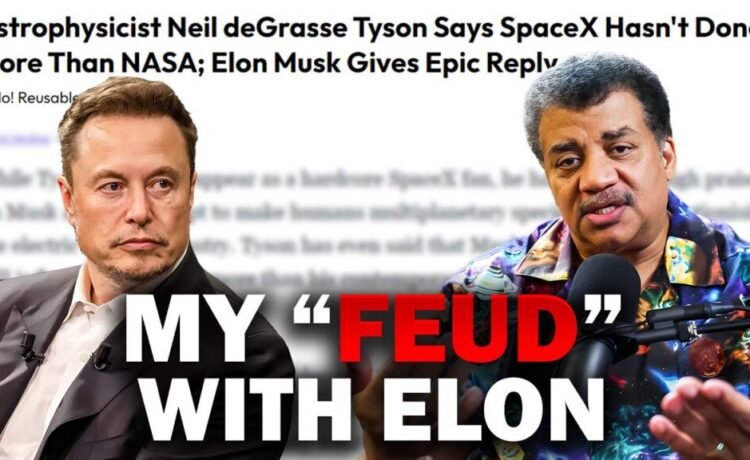One would count neither Elon Musk nor Neil deGrasse Tyson among the most reserved public figures of the twenty-first century. Given the efforts Musk has been making to push into the business of outer space, which has long been Tyson’s intellectual domain, it’s only natural that the two would come into conflict. Not long ago, the media eagerly latched on to signs of a “feud” that seemed to erupt between them over Tyson’s remark that Musk — or rather, his company SpaceX — “hasn’t done anything that NASA hasn’t already done. The actual space frontier is still held by NASA.”
What this means is that SpaceX has yet to take humanity anywhere in outer space we haven’t been before. That’s not a condemnation, but in fact a description of business as usual. “The history of really expensive things ever happening in civilization has, in essentially every case, been led, geopolitically, by nations,” Tyson says in the StarTalk video above. “Nations lead expensive projects, and when the costs of these projects are understood, the risks are quantified, and the time frames are established, then private enterprise comes in later, to see if they can make a buck off of it.”
To go, boldly or otherwise, “where no one has gone before often involves risk that a company that has investors will not take, unless there’s a very clear return on investment. Governments don’t need a financial return on investment if they can get a geopolitical return on investment.” Though private enterprise may be doing more or less what NASA has been doing for 60 years, Tyson hastens to add, private enterprise does do it cheaper. In that sense, “SpaceX has been advancing the engineering frontier of space exploration,” not least by its development of reusable rockets. Still, that’s not exactly the Final Frontier.
Musk has made no secret of his aspirations to get to Mars, but Tyson doesn’t see that eventuality as being led by SpaceX per se. “The United States decides, ‘We need to send astronauts to Mars,’ ” he imagines. “Then NASA looks around and says, ‘We don’t have a rocket to do that.’ And then Elon says ‘I have a rocket!’ and rolls out his rocket to Mars. Then we ride in the SpaceX rocket to Mars.” That scenario will look even more possible if the unmanned Mars missions SpaceX has announced go according to plan. Whatever their differences, Tyson and Musk — and every true space enthusiast — surely agree that it doesn’t matter where the money comes from, just as long as we get out there one day soon.
Related content:
Explore the Surface of Mars in Spectacular 4K Resolution
Neil deGrasse Tyson: ‘How Much Would You Pay for the Universe?’
When Asteroids Attack! Neil deGrasse Tyson and NASA Explain How To Stop an Armageddon
Neil deGrasse Tyson Lists 8 (Free) Books Every Intelligent Person Should Read
Based in Seoul, Colin Marshall writes and broadcasts on cities, language, and culture. His projects include the Substack newsletter Books on Cities and the book The Stateless City: a Walk through 21st-Century Los Angeles. Follow him on the social network formerly known as Twitter at @colinmarshall.















